News on film: How Spielberg’s The Post continues Hollywood’s tradition of making anti-heroes out of journalists
Accepting her Cecille B DeMille award at the Golden Globes last year, Meryl Streep extolled the virtues of the press – and was echoed by this year’s winner Oprah Winfrey. Now as Streep stars in the latest film about newspapers, David Barnett shouts ‘read all about it’
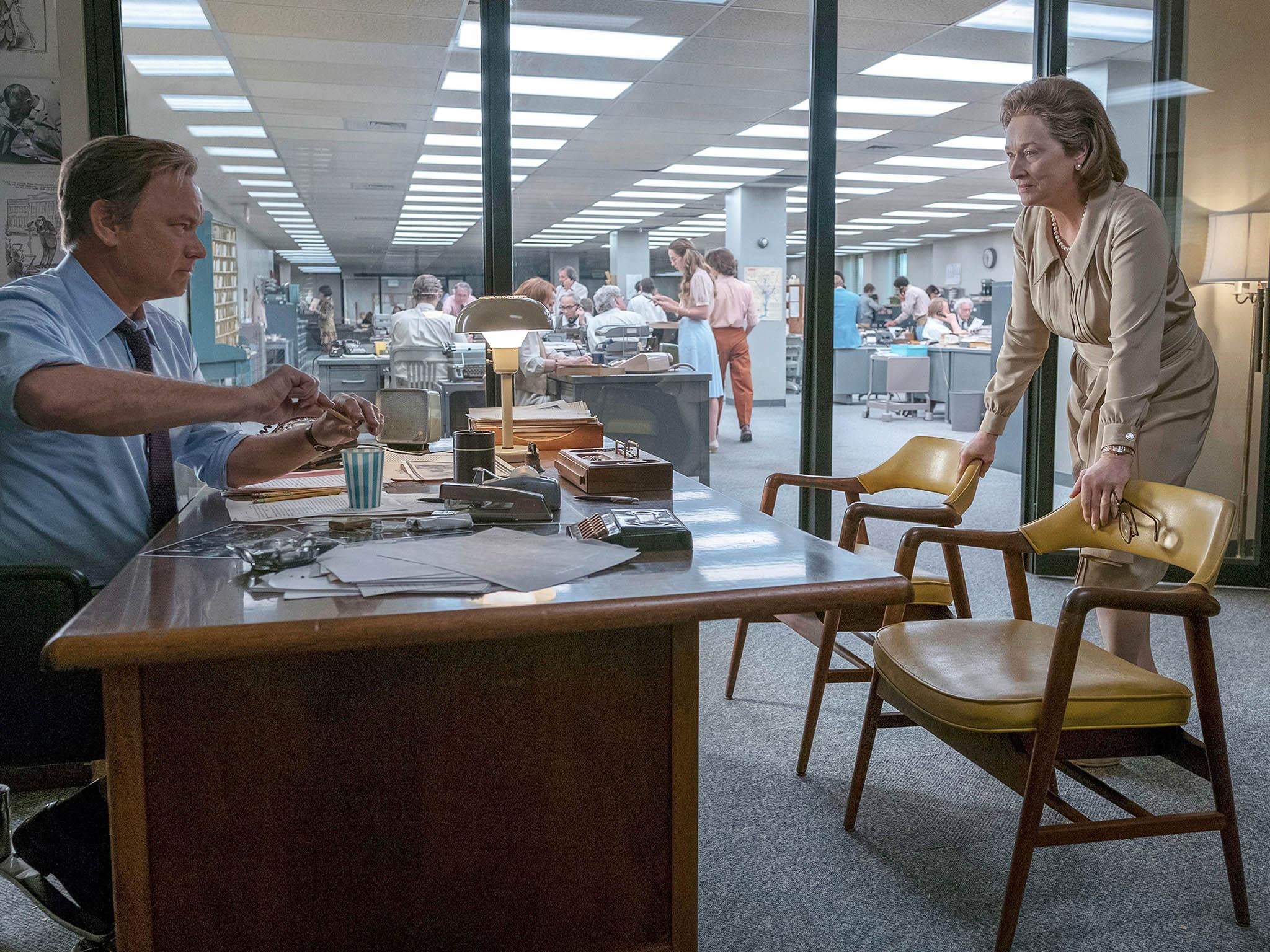
Your support helps us to tell the story
From reproductive rights to climate change to Big Tech, The Independent is on the ground when the story is developing. Whether it's investigating the financials of Elon Musk's pro-Trump PAC or producing our latest documentary, 'The A Word', which shines a light on the American women fighting for reproductive rights, we know how important it is to parse out the facts from the messaging.
At such a critical moment in US history, we need reporters on the ground. Your donation allows us to keep sending journalists to speak to both sides of the story.
The Independent is trusted by Americans across the entire political spectrum. And unlike many other quality news outlets, we choose not to lock Americans out of our reporting and analysis with paywalls. We believe quality journalism should be available to everyone, paid for by those who can afford it.
Your support makes all the difference.Pity the poor journalist. Nobody likes us. We regularly top the polls of most distrusted or reviled professions, along with politicians and bankers. You probably hate me already, and you’ve only read the first paragraph.
When we’re not tapping your phones or camping out on your doorstep in your hour of despair, we’re writing stupid stories about ducks on skateboards or following Z-list celebrities around in the hope they’ll flash a bit of thigh. At the other end of the scale we’re writing lengthy reports of Rotary Club coffee mornings and chewing up bandwith with photos of angry people pointing at box junctions or dog poo. We’re just the pits.
Which is why it’s so surprising that movies about news folk are so popular. The latest one, The Post is produced and directed by Steven Spielberg and stars Meryl Streep and Tom Hanks. The movie documents the battle between journalists from the Washington Post and the New York Times in the early 1970s to publish the revelations of the scope of the US government’s involvement in the Vietnam War.
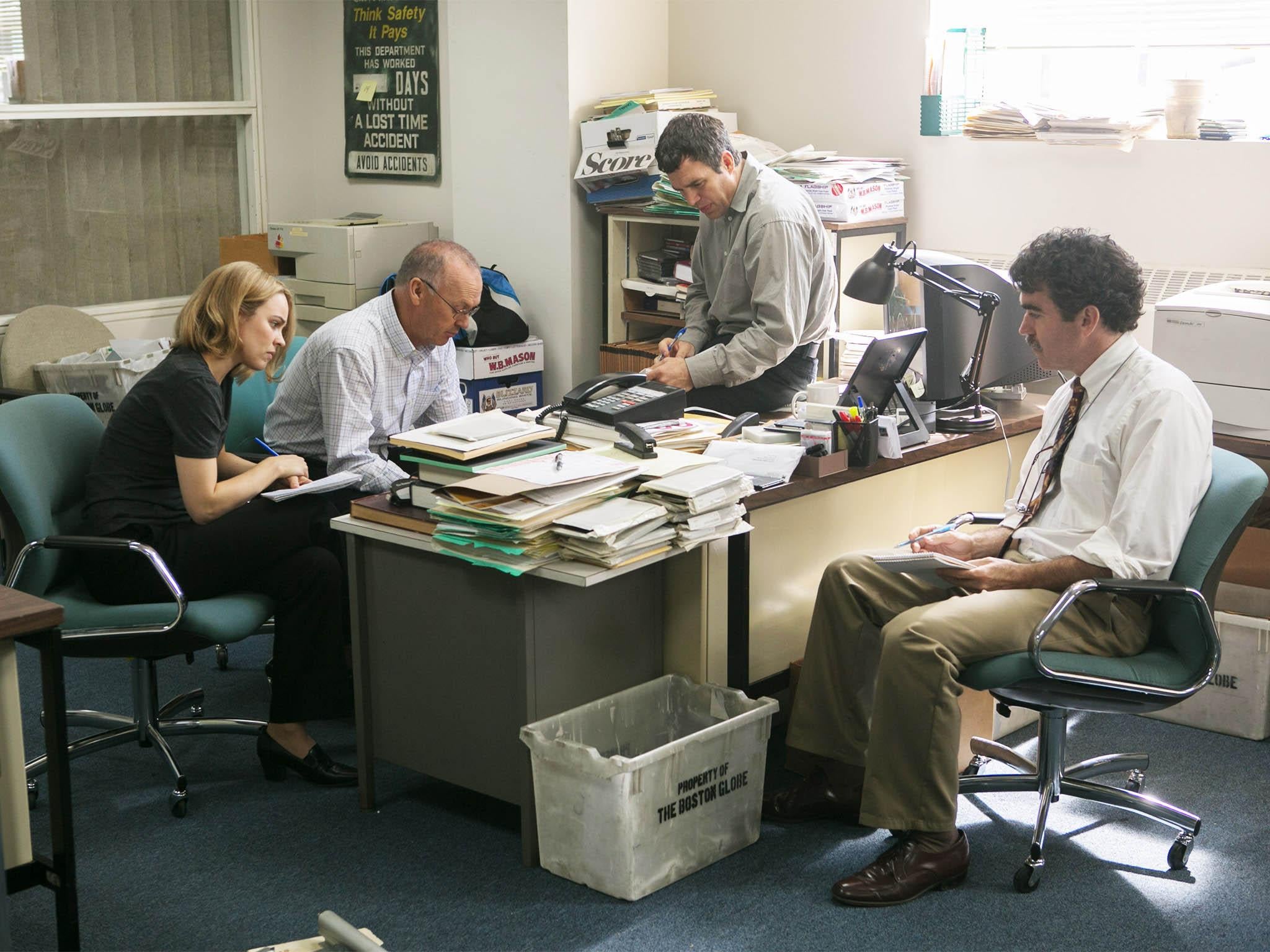
The Post is the latest chapter in the story of the journalist as hero: the stubborn crusader for truth; bullish enemy of authoritarianism; doggedly determined pursuer of facts.
(Strictly speaking, it should be called “The Times”, for it was to the NYT that the so-called Pentagon Papers detailing the cover-up that crossed four presidencies was released.)
Joe Saltzman is a lecturer in journalism at the University of Southern California and a particular scholar of the portrayal of the news business on the big screen and elsewhere; in fact, he’s the director of a research project called “Image of the Journalist in Popular Culture”.
In an interview with fellow USC academic Henry Jenkins a few years ago, Saltzman pointed out that the portrayal of the journalist in dramatic form goes back further than we might think. He said: “The surprising thing is that the image of the journalist hasn't changed much throughout the centuries. In Antigone, Sophocles summed up the popular opinion more than 400 years before Christ was born: ‘None love the messenger who brings bad news.’ About the same time, another popular play told the story of a herald bringing shocking news to the mad hero who is believed to be involved in a murder plot. The hero picks up the herald and dashes his brains upon a stone. No doubt the audience cheered. And so, the image began.
“The basic image of the journalist from the silent days of the movies to the media-drenched days of the early 21st century is that of the flawed hero fighting everyone and anything to get the facts out to the public. The reporter or editor could get away with anything as long as the end result was in the public interest. The journalist could lie, cheat, distort, bribe, betray, or violate any ethical code as long as the journalist exposed corruption, solved a murder, caught a thief or saved an innocent. Most films about journalism end with the reporter or editor winning the battle, if not the war.”
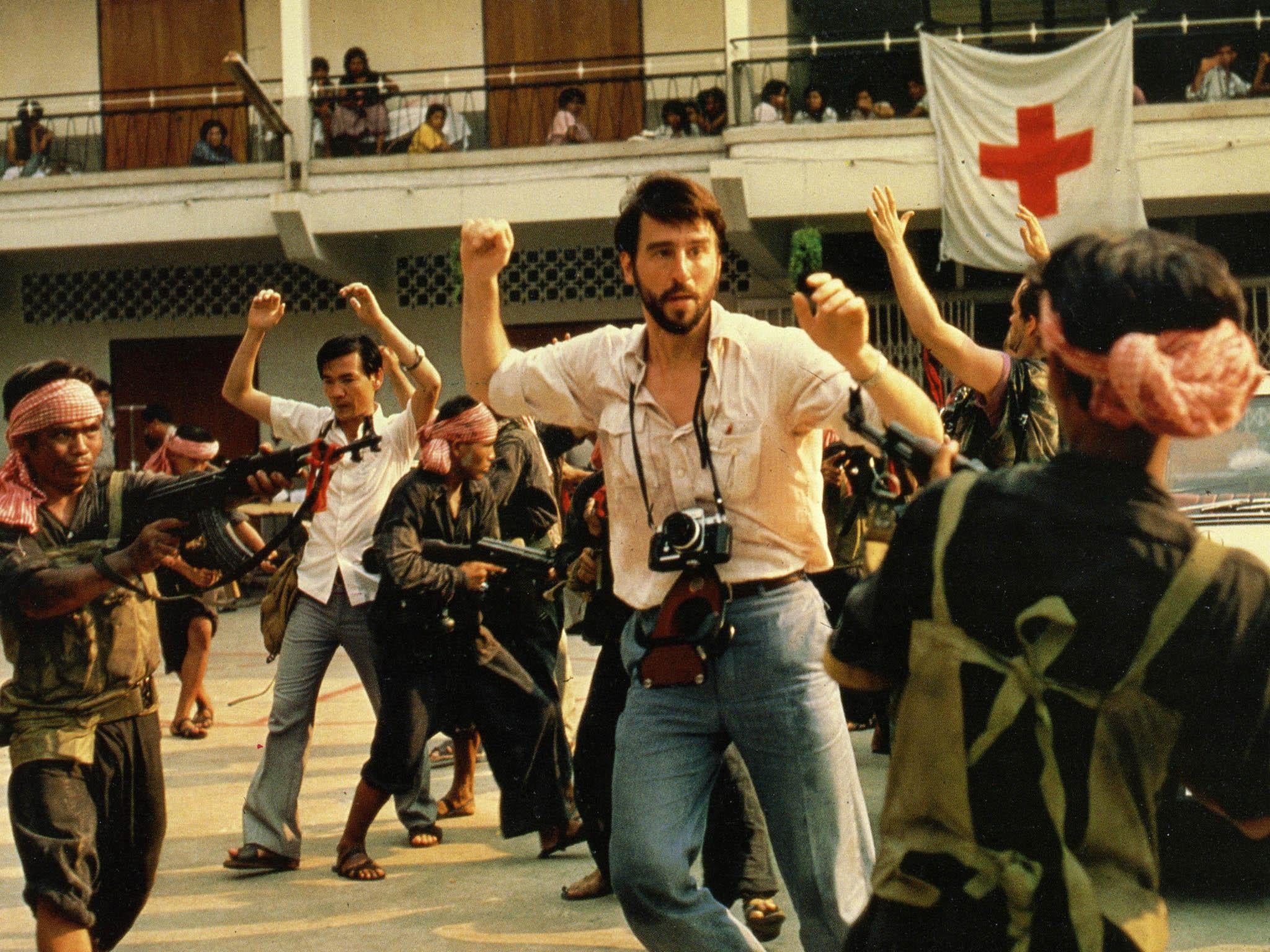
The Post occupies the sub-genre of movies based on real-life events, and that particular corner is already home to, most recently, Spotlight (2015). It focuses on journalists at the Boston Globe who uncover the scale of abuse in the Catholic Church dating back to the 1970s. The Killing Fields (1984) was based on the experiences of American journalist Sydney Schanberg and Cambodian reporter and translator Dith Pran during the Khmer Rouge regime’s horrific reign that resulted in genocide.
But the godfather of true-life journalism movies has to be All The President’s Men (1976) the Alan J Pakula-directed classic starring Robert Redford and Dustin Hoffman as Bob Woodward and Carl Bernstein, the tenacious reporters from the Washington Post who uncovered the Watergate scandal and effectively brought down Richard Nixon’s administration.
These are the films which portray journalists as the white knights, as with their shields of freedom and their lances of truth piercing the web of lies that authority tends to throw up to obfuscate its darker dealings. But throughout the history of TV and cinema, journalists haven’t always been the good guys.
For those working in the trade, there is constant eye-rolling at the lazy portrayal of reporters in modern TV dramas and especially soaps, when local newspaper hacks will be seen employing hard-nosed, foot-in-the-door tactics, or going through bins and trespassing on private property. Most modern local reporters can barely leave their desks to nip to the loo, let alone spend an afternoon harassing the residents of Coronation Street. Even more hilarious is when a character runs over a dog or has an affair and a press pack of the proportions and temperament of a Mongol horde descends upon them, as though Weatherfield or Walford is home to several dozen newspapers who can each afford a couple of staff to rampage around in a frenzy all day.
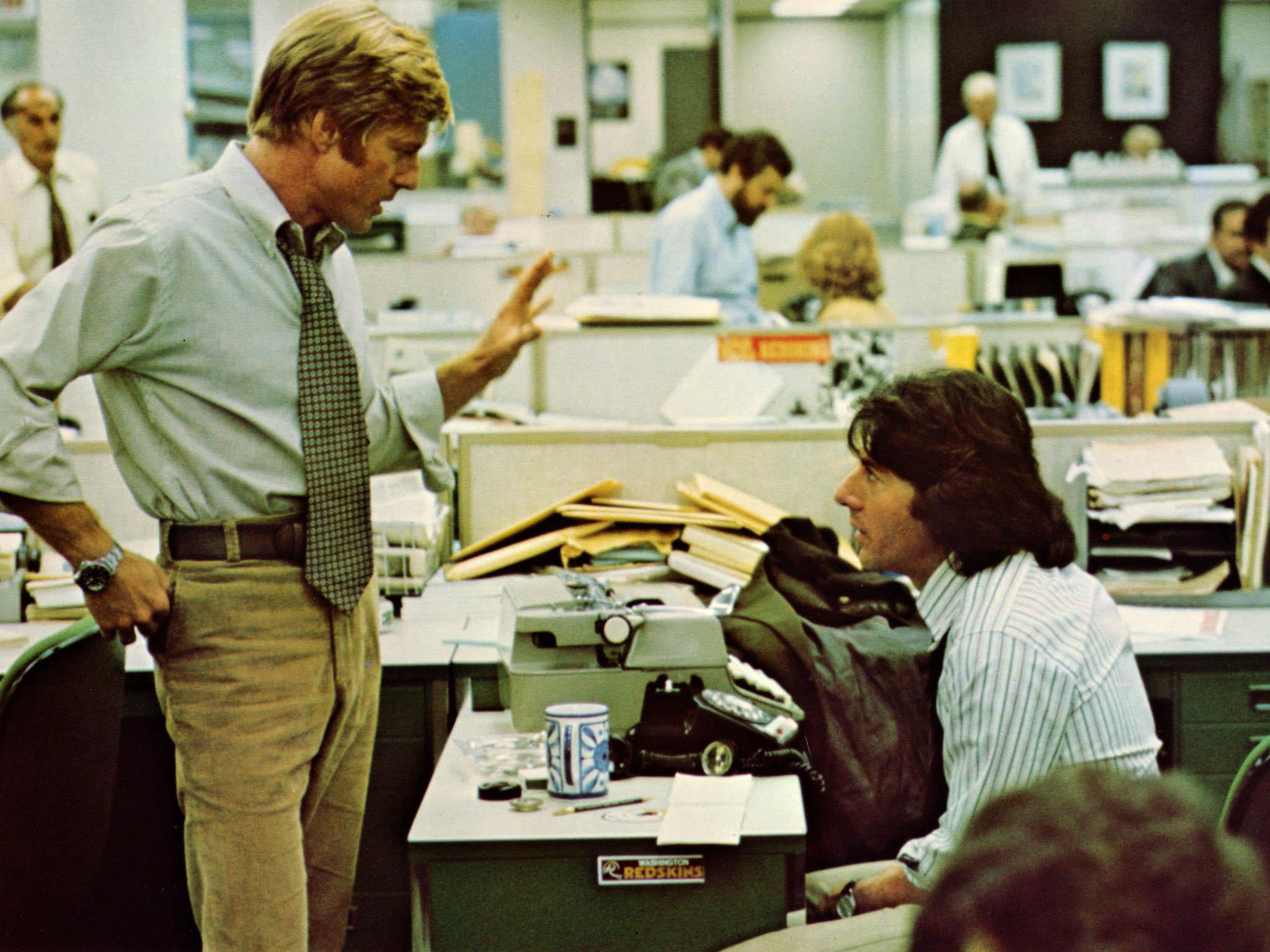
Post-Leveson inquiry, which shone the spotlight on the news industry itself and especially the prevalence of phone hacking on British tabloids throughout the Noughties, the public perhaps has a dimmer view of the press pack than it did in previous years. As Saltzman says: “Perhaps the most dominant and damaging image of the journalist in popular culture is that of anonymous reporters chasing after stories. In countless movies, television programmes and novels, they travel in packs, usually armed with television cameras and microphones. They cover fast-breaking news by crowding, yelling, shouting, bullying and forcing their way into breaking news events.
“There were always such packs of aggressive print journalists chasing after heroes in movies, and they made a negative impact through the years, but their zeal was usually taken in good spirits. Nowadays, they appear far more menacing and out of control because their lights, cameras, microphones and tape recorders are jabbed into faces of real people on television news and favourite actors in movies and entertainment television programmes.”
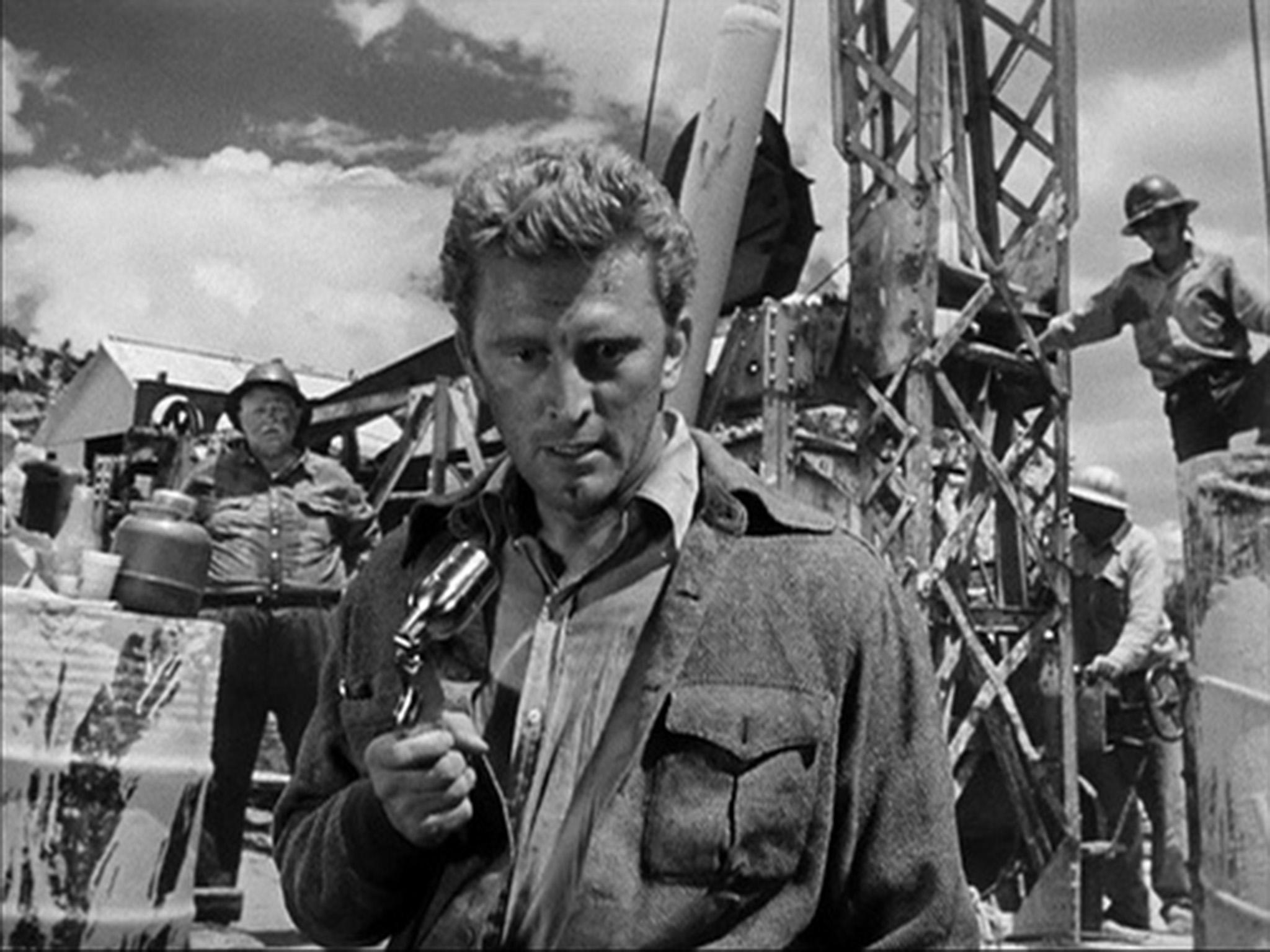
But there’s fun and escapism to be had in fictional newshounds as well. Superman debuted in the comics in 1933, and from the off his alter ego Clark Kent was a reporter for Metropolis’s Daily Planet, alongside hard-nosed journalist and on-off love interest, Lois Lane. The 1940 Howard Hawks screwball comedy His Girl Friday featured Cary Grant as a newspaper editor in sparky relationship with on-screen ex-wife Rosalind Russell, also his star reporter. It would be interesting today to find out how well the female hacks were paid in relation to their male counterparts back then.
As Saltzman said, the story is the end and everything utilised to get it is the means, and play doesn’t always have to be fair. In 1951 Kirk Douglas starred in Ace In The Hole as Chuck Tatum, a disgraced ex-reporter desperate to get back in the game. Tatum spots an opportunity when a story breaks about a treasure-hunter who becomes trapped in a collapsed cave – and he exploits it by conniving with an unscrupulous sheriff to prolong the situation.
A decade later, sci-fi disaster flick The Day The Earth Caught Fire focused on Edward Judd’s Daily Express reporter who stumbles on the fact that simultaneous nuclear bomb tests have forced Earth out of its orbit and closer to the sun. Or, to put it in the parlance of the paper’s current incarnation, “You’ll never guess why two big BANGS are making us all sizzling HOT!”
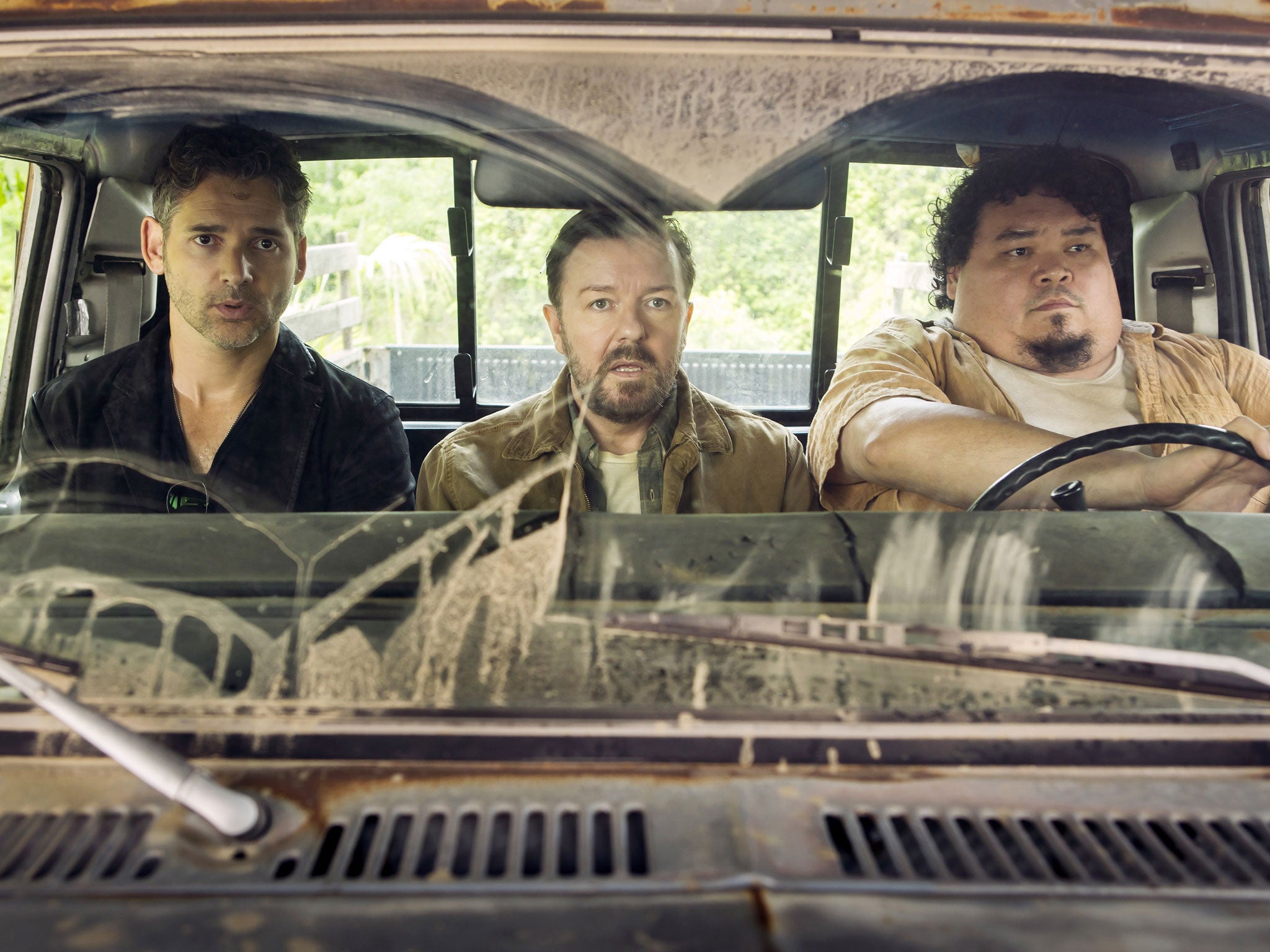
In Spotlight, the editor of the investigative team is played by Michael Keaton, but it’s not his first shot at the editor’s chair. Back in 1994 he helmed a fictional New York Sun in the Ron Howard glossy comedy-thriller The Paper, which detailed a 24-hour period in which Keaton’s Henry Hackett covers a murder, finds evidence of a conspiracy, and has an actual fight with the female managing editor in the print room to stop the presses rolling with a wrong, and inflammatory, headline. The Paper is hokum but enjoyable, though it has less in common with Spotlight and The Post and is more in the vein of the feel-good vibes of the late-Seventies TV show Lou Grant. Originally a spin-off from the more comedic Mary Tyler Moore Show, Lou Grant starred Ed Asner as the hardbitten – but with a heart of gold – city editor of a Los Angeles newspaper. It dealt with often serious issues and touched on journalistic ethics, but often with a heartwarming denouement.
In the UK, we’ve never seemed that comfortable with venerating the fourth estate, The Day The Earth Stood Still aside. Nineties Channel 4 comedy Drop the Dead Donkey was notable for launching the careers of Haydn Gwynne, Stephen Tompkinson and Neil Pearson, and for being as bang-up-to-the-minute as possible. Creators Andy Hamilton and Guy Jenkins went right to the wire with writing and recording episodes to ensure topicality. Ricky Gervais’s 2016 Netflix film Special Correspondent featured a double-dealing, morally bankrupt reporter, while one of the few times the day-to-day lives of local newspaper journalists has been mined for TV resulted in the eminently forgettable Nelson’s Column sitcom starring Gregory’s Girl’s John Gordon Sinclair.
Indeed, the most memorable and successful films featuring journalism are ones that take a long perspective, timewise. The 1970s seems particularly fertile ground, combining the perfect storm of high-level corruption, a disregard for transparency in authority, and a golden age when newspapers were well funded, heavily staffed, and had time, resources and the inclination to make a difference.
With the way many news organisations, both national and local, are funded these days, it might not be long before movies like The Post are period dramas showcasing an industry that we might, if we’re not careful, lose for good.
The Post is available digitally from 14 May and DVD & Blu ray from 21 May.
Join our commenting forum
Join thought-provoking conversations, follow other Independent readers and see their replies
Comments